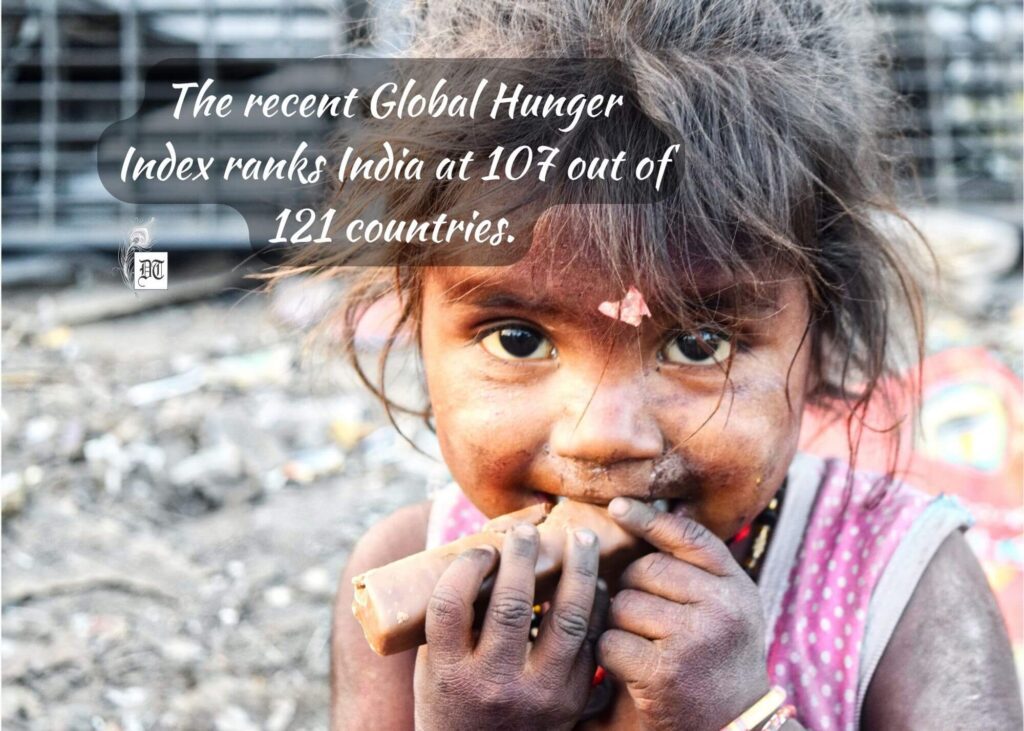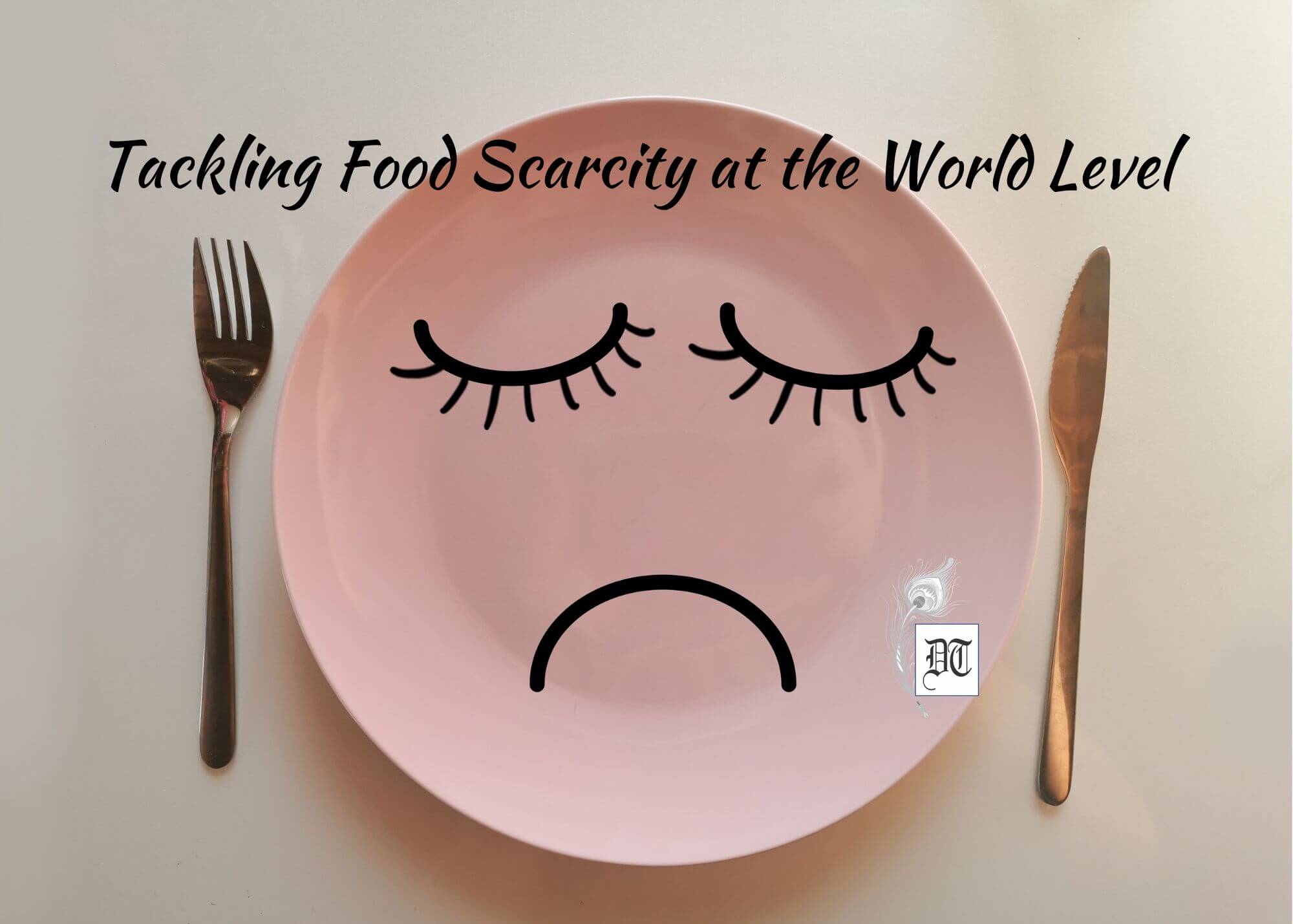A recently published Oxfam International report stated that one person dies of hunger worldwide every four seconds. While wealth is in the hands of a few super-rich, the poor are starving, rues Dr Baljeet. What’s the way out – an exclusive for Different Truths.
One of the severest afflictions staring the face of humanity today is the food crisis. As per a report of Oxfam International, a privately funded non-government organisation, published on September 20, 2022, one person dies of hunger every four seconds across the world. John Holmes, the United Nations Under-Secretary-General of Humanitarian Affairs, claims that 25000 people, including 10000 children, die daily due to hunger-related issues.
The number of those facing acute food insecurity has soared- from 135 million to 345 million- since 2019.
The United Nations World Food Programme, the largest humanitarian organisation dealing with hunger, points out in its report, 2022: “As many as 828 million people go to bed hungry every night. The number of those facing acute food insecurity has soared- from 135 million to 345 million- since 2019. A total of 49 million people from 49 countries are teetering on the edge of famine” The worst affected countries in recent times are Somalia, Nigeria, Kenya, Yemen, South Sudan, and Ethiopia, where a large mass of the starving population, in millions, have been compelled to leave their hearths and homes and migrate to distant places to fill their empty stomachs. These staggering figures of starvation of the poor masses of the world at large are heart-rending and highly shocking.
The factors which precipitated this crisis of rather an unmanageable magnitude are varied and complex. The most significant are 1. Economic and Social inequality 2. Population explosion, 3. Conflicts, 4. Pandemic, and 5. Climate change. Unequal distribution of wealth at the international level and within the countries constitutes one of the significant causes of poverty. There is a vast wealth gap between developed and developing countries.
…most people inhabiting poor countries live on the edge. Their condition is, overall, miserable.
Consequently, most people inhabiting poor countries live on the edge. Their condition is, overall, miserable. At the individual level, it is mind-boggling to go through the data collected by Oxfam International that in 2019, 2153 world billionaires owned more wealth than the wealth of 4.6 billion people, i.e., more than 50% of the world population. The wealthiest person in the world is Elon Musk, co-founder and CEO of Tesla and now also the owner of Twitter. As per the latest report, his net worth is $191 billion. He is known to have fired half of his employees who criticised him for his policies.
Similarly, Jeff Bezos of Amazon holds a net worth of $122 billion and, like Elon Musk, has laid off more than 10000 employees, citing cutting costs due to high inflation as the reason. Bill Gates, Gautam Adani, and Bernard Arnault are others in this super-rich category. They lead lavish lifestyles; hire and fire employees at their sweet will with the least humanistic touch. Thus, the concentration of enormous wealth in a few hands breeds gross inequality in society. The rich are becoming richer, and the poor the poorer. Poverty, as we know it, is the root cause of hunger. Second, exploding population of the world, now on the verge of crossing eight billion, is another cause of food scarcity. Tragically, farmlands are being converted to non-agricultural use haphazardly due to rapid urbanisation and thus leading to a drastic fall in grain production. Naturally, how can it feed the needs of the ever-growing population?
The recent Global Hunger Index ranks India at 107 out of 121 countries.
Interestingly and pathetically, India will become the world’s most populous country by overtaking China next year. The recent Global Hunger Index ranks India at 107 out of 121 countries. But the Indian government has rebutted this inference terming it a shoddy conclusion. Notwithstanding India’s denial, we cannot turn our back on the stark reality, like a pigeon closing its eyes on seeing a cat that cat does not exist. Third, the ongoing conflicts worldwide, particularly Russia-Ukraine, have played havoc with the lives of hapless people.

Millions are migrating to distant regions in search of food and employment. Such protracted conflicts have disrupted food supply chains leading to food shortages, inflation, and energy crisis. Fourth, Covid-19 has added more fuel to the ravaging fire. The Pandemic not only took a heavy toll but also rendered millions of people jobless due to repeated lockdowns, making it difficult for them to survive. Lastly, climate change has worsened the situation primarily due to man-induced activities. Severe droughts, devastating floods and extreme heat waves in different regions have added woes to the already poverty-stricken masses.
Hunger has assumed a monstrous form devouring poor people at an alarming rate across the world. Many agencies, government and non-government, at the international and national level, deal with this ever-spreading malaise. The United Nations World Food Programme was the largest, established in 1961. Its headquarter is in Rome, Italy. According to its report, in 2021, it had provided aid, in kind and cash, to 128 million people worldwide. UNICEF is another prominent organisation working for the development of children. Besides, Care, Action Against Hunger, Bread for the World, The Hunger Project, Alliance to End Hunger, Mealshare and others are engaged in alleviating hunger. Akshay Patra is an Indian NGO busy implementing Mid-Day-Meal Scheme in government schools. It aims to eliminate malnutrition among children and support their right to education.
The super-rich should be taxed heavily to reduce inequality and exploitation, and the money collected there needs to be spent on the less fortunate.
Notwithstanding all the strenuous and concerted efforts by various organisations, hunger is spreading its tentacles uninterruptedly. It needs more funds and cooperation between the governments, non-government organisations and the people to rein in its ever-increasing pace at this juncture. The super-rich should be taxed heavily to reduce inequality and exploitation, and the money collected there needs to be spent on the less fortunate. Proper measures are required to deal with climate disturbances to save the life-sustaining planet; and, of course, to contain the rising population.
Otherwise, one is reminded of the ‘Bread Riots’ that broke out in France just before and during the French Revolution of 1789. Wherein starving mobs of thousands drove down to the streets of different cities and villages in France and started to loot granaries, groceries, and bakeries. There was lawlessness and rampage all around. Mass killings of nobles and aristocrats had become a routine affair. The government of the day had failed to restore law and order. Therefore, in light of these events, preparations on the war footing are the need of the hour – lest history repeats itself.

Picture design by Anumita Roy






 By
By
 By
By
 By
By
 By
By